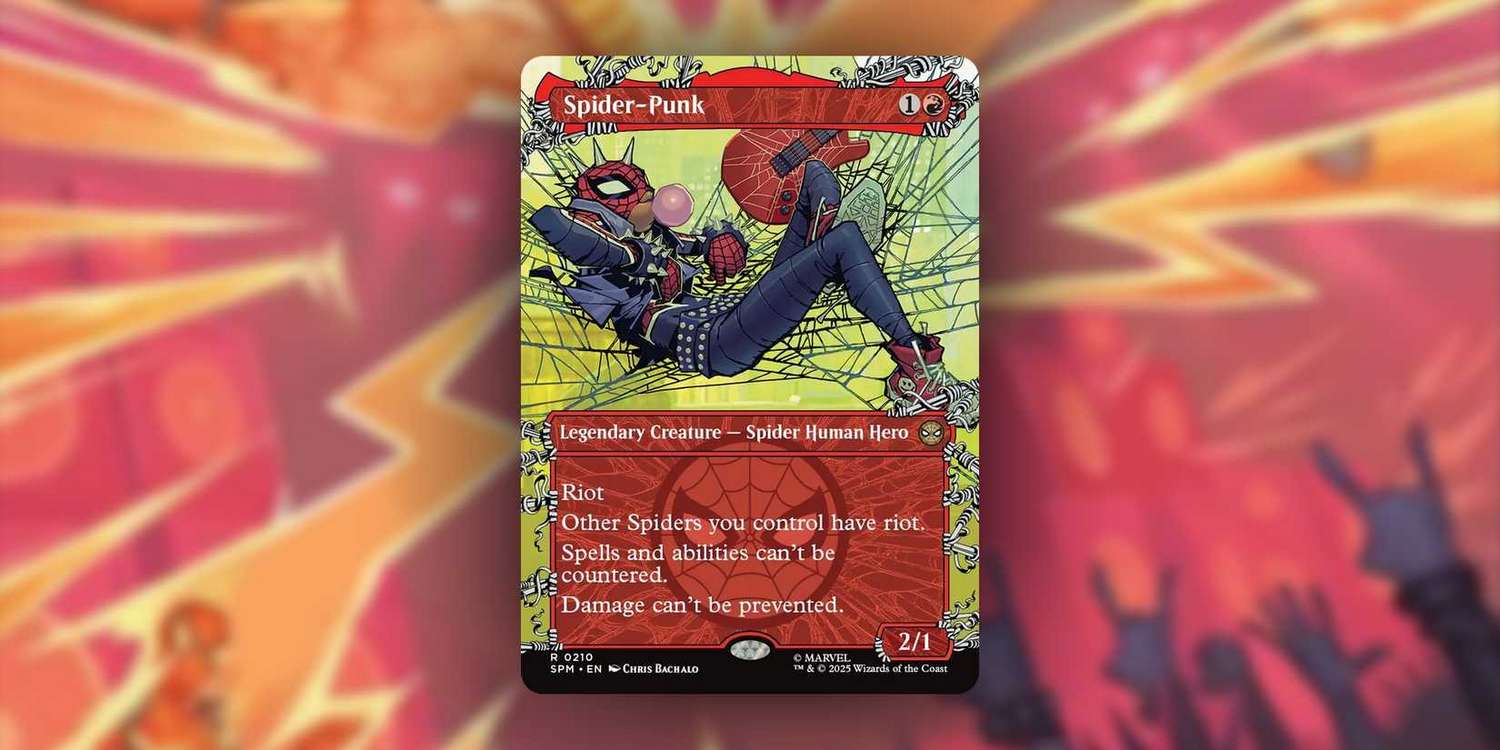MTG’s Spider-Man Survey: The Catch That Turns Player Feedback into a Scapegoat
Popular Now
 PUBG Mobile
PUBG Mobile
 Roblox
Roblox
 Sonic the Hedgehog™ Classic
Sonic the Hedgehog™ Classic
 Fall Guys
Fall Guys
 Black Myth: Wukong
Black Myth: Wukong
 R.E.P.O
R.E.P.O
 Valorant
Valorant
 Minecraft
Minecraft
 Free Fire
Free Fire
 Genshin Impact
Genshin Impact
 The recent launch of the Magic: The Gathering x Marvel’s Spider-Man set, part of the controversial “Universes Beyond” crossover line, has been met with significant backlash from a vocal part of the community. In an expected move to gather feedback, publisher Wizards of the Coast (WotC) released a player survey—but one particular question has stirred a new wave of controversy, suggesting an attempt to shift blame for the set’s poor reception.
The recent launch of the Magic: The Gathering x Marvel’s Spider-Man set, part of the controversial “Universes Beyond” crossover line, has been met with significant backlash from a vocal part of the community. In an expected move to gather feedback, publisher Wizards of the Coast (WotC) released a player survey—but one particular question has stirred a new wave of controversy, suggesting an attempt to shift blame for the set’s poor reception.
The core issue highlights a growing tension between a major Trading Card Game (TCG) company, its influential content creators, and the community’s response to an aggressive release schedule dominated by non-original IP.
The Survey Question: Casting Blame on Influencers
The key point of contention is a specific, targeted question within the survey, which is reportedly shown to players who indicated they get their set information from content creators. It essentially asks players to what degree “negative influencer commentary” impacted their perception of the Spider-Man set before release. The options range from “Greatly worsened my perception” to “Greatly improved my perception.”
 The Catch: The question is widely being interpreted by the community and the influencers themselves as a thinly veiled attempt by WotC to:
The Catch: The question is widely being interpreted by the community and the influencers themselves as a thinly veiled attempt by WotC to:
- Find a Scapegoat: Instead of looking internally at potential set design flaws (such as repetitive characters, unexciting card mechanics, or the controversial “Pick-Two” limited format), the question appears to seek a narrative that external negativity—specifically from streamers and YouTubers—was the primary driver of poor sales/reception.
- Intimidate Content Creators: Prominent MTG personalities, including Hall of Famers, expressed concern that the nature of the question (and other prompts asking them to name the creators they follow) could be used to retaliate against those who were critical of the set.
 WotC’s Response and the Fallout
WotC’s Response and the Fallout
The backlash was so immediate and severe that a WotC official, Blake Rasmussen, publicly addressed the controversy, admitting the question “is not a good question.” He, however, sought to reassure the community that the data would not be used to “punish” or “attack” content creators for having negative opinions.
Despite the official walk-back, the damage was done. Many players viewed the question as confirmation that WotC is more focused on managing online perception than addressing the community’s fundamental concerns, which include:
- “Universes Beyond” Fatigue: A growing sentiment that the pace of non-MTG IP crossovers is diluting the core game’s identity.
- Quality of Set Design: Complaints that the Spider-Man set felt “rushed” and “half-assed,” reportedly due to it being repurposed from a smaller concept into a full Standard-legal product.
- Pricing and Financial Value: General player discontent over the increased price of products coupled with a perceived decline in the number of high-value, competitively relevant cards in the set.
The incident is a major talking point in the collectible card game industry, shining a light on the volatile relationship between publishers, social media influencers, and an increasingly sophisticated consumer base in the rapidly growing TCG market (forecasted to reach over $16.26 billion in 2026).









